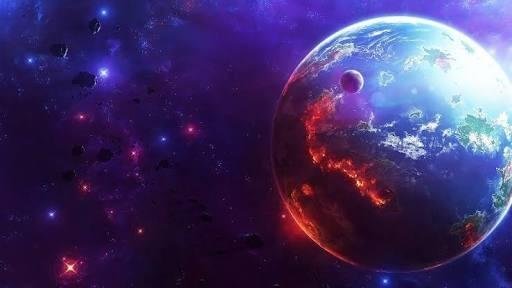Follow the money and you will end up in space.
That’s the message from a first-of-its-kind forum on
mining beyond Earth.
Convened in Sydney by the Australian Centre for
Space Engineering Research, the event brought
together mining companies, robotics experts, lunar
scientists, and government agencies that are all
working to make space mining a reality.
The forum comes hot on the heels of the
2012 unveiling of two private asteroid-mining firms.
Planetary Resources of Washington says it will
launch its first prospecting telescopes in two years,
while Deep Space Industries of Virginia hopes to be
harvesting metals from asteroids by 2020. Another
commercial venture that sprung up in 2012,
Golden Spike of Colorado, will be offering trips to
the moon, including to potential lunar miners.
Within a few decades, these firms may be
meeting earthly demands for precious metals, such as
platinum and gold, and the rare earth elements vital
for personal electronics, such as yttrium and
lanthanum. But like the gold rush pioneers who
transformed the western United States, the first space
miners won’t just enrich themselves. They also hope
to build an off-planet economy free of any bonds
with Earth, in which the materials extracted and
processed from the moon and asteroids are delivered
for space-based projects.
In this scenario, water mined from other
worlds could become the most desired commodity.
“In the desert, what’s worth more: a kilogram of gold
or a kilogram of water?” asks Kris Zacny of
HoneyBee Robotics in New York. “Gold is useless.
Water will let you live.”
Water ice from the moon’s poles could be sent to
astronauts on the International Space Station for
drinking or as a radiation shield. Splitting water into
oxygen and hydrogen makes spacecraft fuel, so
ice-rich asteroids could become interplanetary
refuelling stations.
Companies are eyeing the iron, silicon, and
aluminium in lunar soil and asteroids, which could
be used in 3D printers to make spare parts or
machinery. Others want to turn space dirt into
concrete for landing pads, shelters, and roads.
Passage 2
 The motivation for deep-space travel is shifting
The motivation for deep-space travel is shifting
from discovery to economics. The past year has seen
a flurry of proposals aimed at bringing celestial riches
down to Earth. No doubt this will make a few
billionaires even wealthier, but we all stand to gain:
the mineral bounty and spin-off technologies could
enrich us all.
But before the miners start firing up their rockets,
we should pause for thought. At first glance, space
mining seems to sidestep most environmental
concerns: there is (probably!) no life on asteroids,
and thus no habitats to trash. But its consequences
—both here on Earth and in space—merit careful
consideration.
Part of this is about principles. Some will argue
that space’s “magnificent desolation” is not ours to
despoil, just as they argue that our own planet’s poles
should remain pristine. Others will suggest that
glutting ourselves on space’s riches is not an
acceptable alternative to developing more sustainable
ways of earthly life.
History suggests that those will be hard lines to
hold, and it may be difficult to persuade the public
that such barren environments are worth preserving.
After all, they exist in vast abundance, and even
fewer people will experience them than have walked
through Antarctica’s icy landscapes.
There’s also the emerging off-world economy to
consider. The resources that are valuable in orbit and
beyond may be very different to those we prize on
Earth. Questions of their stewardship have barely
been broached—and the relevant legal and regulatory
framework is fragmentary, to put it mildly.
Space miners, like their earthly counterparts, are
often reluctant to engage with such questions.
One speaker at last week’s space-mining forum in
Sydney, Australia, concluded with a plea that
regulation should be avoided. But miners have much
to gain from a broad agreement on the for-profit
exploitation of space. Without consensus, claims will
be disputed, investments risky, and the gains made
insecure. It is in all of our long-term interests to seek
one out.
Authors get paid when people like you upvote their post.
If you enjoyed what you read here, create your account today and start earning FREE STEEM!
If you enjoyed what you read here, create your account today and start earning FREE STEEM!
This post has received gratitude of 1.00 % from @jout
Downvoting a post can decrease pending rewards and make it less visible. Common reasons:
Submit
You got a 0.27% upvote from @postpromoter courtesy of @jout!
Downvoting a post can decrease pending rewards and make it less visible. Common reasons:
Submit
Congratulations @auntigormint! You have completed some achievement on Steemit and have been rewarded with new badge(s) :
Click on any badge to view your own Board of Honor on SteemitBoard.
For more information about SteemitBoard, click here
If you no longer want to receive notifications, reply to this comment with the word
STOPDownvoting a post can decrease pending rewards and make it less visible. Common reasons:
Submit
Congratulations @auntigormint! You have completed some achievement on Steemit and have been rewarded with new badge(s) :
Click on any badge to view your own Board of Honor on SteemitBoard.
For more information about SteemitBoard, click here
If you no longer want to receive notifications, reply to this comment with the word
STOPDownvoting a post can decrease pending rewards and make it less visible. Common reasons:
Submit